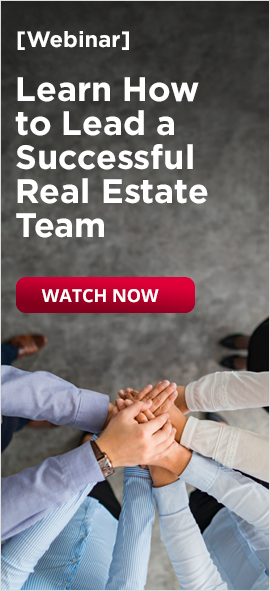In real estate, networking is a great tool to connect with fellow agents, gain some exposure and find a seat at some notable industry events. But networking can also be used–and should also be used–to expand your lead generation opportunities, especially if it’s an in-person event.
Networking is crucial to your success in the field in more ways than one, especially for newer agents looking to build a sphere of influence. It can help you in locating new and quality leads who can one day soon turn into your future clients.
Let’s break down how networking enhances your visibility in the business and some actionable tips you can use on a daily basis to grow your sphere.
Know Your Audience
When marketing to potential clients, it is best to have a more focused audience rather than cast a wide net. This helps you formulate a direct, streamlined and effective marketing and communications strategy specific to one or two demographics. For instance, if you want to generate more leads through networking, start by finding events where you can connect with a targeted audience, such as seniors, first-time home buyers or luxury home buyers.
With that in mind, it’s also important to know how to communicate with all levels and demographics of potential clients. First-time buyers might have more basic and general questions, such as mortgage rates, what’s involved in a 30-year mortgage, school districts, or how to get a lower payment; investment buyers might be more interested in the development of the area for a bigger payoff when they sell it at a later date; vacation home buyers might want to know more about tax breaks, interest reduction and varying real estate values.
By prepping and anticipating what your unique sets of clients are looking for, you can personalize your messaging and resources to better speak to potential clients at events like Q&A’s or meet-and-greets. Hone in on things like what business problems they face, what solutions have they tried and how you can provide something new and novel to solve their problems and meet their needs.
Never Underestimate the Power of the Business Card
A business card is key to handing out your information to a potential client or professional referral with ease. Your business card represents you and your services, so be sure to include the most up-to-date and important information on it as well as any branding.
For example, an effective business card should have boilerplate info, like name, contact numbers, email and website. But it should also include your social media handles for LinkedIn, Facebook and more. This opens up the opportunity to connect with clients on a more visual, creative and personable level. By having a handful of business cards on board at events, no matter how big or small the event may be, can work wonders in terms of anyone being able to reach out or connect online.
From here, you can have potential clients reach out to you or fellow real estate agents touch base to get you linked up with a referral.
Follow Up
Showing up to industry events, like HomeSmar’s annual Growth Summit or seasonal mastermind workshops, is a great way to pass around some business cards and make connections in person. But this is only half of the legwork you need to put forth as the real gain comes from following up and staying persistent, whether it’s with a fellow real estate pro or a potential buyer or seller.
Yes, there is the caricature of the real estate agent who is aggressive in their communications, but it’s important to not pressure the client into making a decision sooner than they would like to because it will potentially increase your chances of being turned down.
Next, don’t be generic–it feels disconnected and un-personal. Instead, when you follow up, mention the specific asks they had in your initial chat. Did a question they asked lead you to think of a unique way to help them? Don’t be afraid to mention it. From here, suggest an in-person meeting to go over the next steps and put something on the calendar.
For fellow agents, you have a little more leeway when it comes to the follow-up. You know they’re busy and they know you’re busy, but it never hurts to make concrete plans to schedule a follow-up meeting. Setting up this kind of meeting guarantees you’ll take further steps to build a relationship and see where it goes in terms of leads and referrals to other clients.
There are many different ways you can meet potential clients or industry connections who can connect you to leads. By staying in touch with new contacts, looking at real estate networking from a marketing perspective and targeting an audience you can meet halfway, you are enhancing your chances of expanding your sphere of influence no matter the marketplace.


